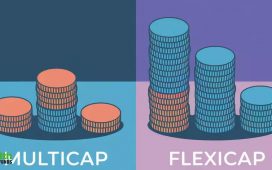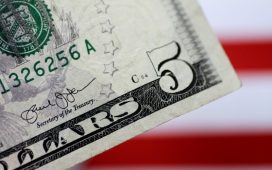The 10% stakes he took in all five of Japan’s major trading houses are by far his largest position outside the United States.
Why Japan and why now?
The reasons are diverse and complex, but they boil down to the fact that the long series of cultural and institutional changes that have taken place in the investment, corporate and monetary policy spheres are finally bearing fruit.
Bank of Japan holds off on raising negative rates
Most obviously, profit margins have more or less doubled in the last decade as underperforming business lines were cut and stronger divisions prioritised.
Previously measly payouts to shareholders have increased significantly – one of the factors that the Sage of Omaha mentioned as a rationale for his investment in the trading houses.
Not coincidentally, corporate governance has improved out of all recognition.
There are new proposals for hostile takeovers that assess deals in terms of their shareholder value.
The Tokyo Stock Exchange is even “naming and shaming” companies whose stocks trade on very low price-to-book multiples, of which there are several hundred, effectively pressuring them to buy back shares and thereby raise their return on equity.
The reason that so many companies have excessive equity – usually in the form of cash and equivalents – is that during the long years of deflation in the nineties and noughties, managements took the view that “cash is king” and leverage is the road to ruin.
At the time they were right, but Japanese economic conditions have moved on since then, with the Bank of Japan closing in on its target of sustainable inflation of 2%. Those balance sheets are now wasteful and inefficient.
No wonder that global private equity firms are committing large sums to Japan.
The same applies to households, which hold more than 50% of their enormous trove of financial assets in cash.
Market Movers Blog: Toshiba delists from Tokyo Stock Exchange after 74 years
Nobody in Japan has experienced durable inflation over 3% since the early 1980s. The shift out of cash into real assets – such as equities and real estate – has yet to begin.
Hopes are high for the new expanded NISA (“Nippon Investment Saving Account”), a tax-free product modelled on the UK’s “ISA” scheme, which is due to be launched in March 2024.
In summary, Japan’s position is unique in that it is emerging from one of the longest and deepest bear markets in history; its households and companies have been hoarding cash while the rest of the world has been piling on the leverage; its financial authorities are committed to raising the rate of inflation in order to banish the spectre of deflation; important figures, such as prime minister Kishida, have explicitly targeted higher investment returns as a key policy goal.
There are also geopolitical issues that boost Japan’s status and potentially benefit the economy. China’s spectacular growth earlier in the century seemed to put deflationary Japan in the shade, with cheaper Chinese goods winning market share from established Japanese competitors.
But in this new era of superpower rivalry, supply chain security outweighs cost. Japan, which has by far the largest East Asian economy after China, is ideally placed for “friend-shoring”.
TSMC, the Taiwanese company that produces most of the world’s most advanced semiconductors, is building two semiconductor plants in Kyushu, known as Japan’s “Silicon Island” on account of all the high-tech Japanese companies based there.
Stock Spotlight: Toyota EV pivot may not be enough to catch Tesla
In recent years, Japan has grown even closer to its ally the United States, as well as Australia and India, forming a security arrangement called the “Quad”.
The defence budget is set to double over the next five years – a remarkable change for a country with a strong pacifist tradition – and weapon-manufacturing companies are already forecasting bumper profits.
The potential drivers of stock market action mentioned above are all unique to Japan, but naturally Japan itself is exposed to the vicissitudes of the global economy. A severe global recession would do damage, as would a soaring oil price or a Lehman-style financial collapse.
There is also the possibility of a policy mistake in Japan itself. The Ministry of Finance has a track record of raising taxes on the consumer at the very worst time and crushing animal spirits. If inflation continues its upward march, then the Bank of Japan will have the tricky job of normalising interest rates without causing ructions in the bond and currency markets.
So far, BoJ Governor Kazuo Ueda has played a blinder and there is no reason for that not to continue.
Over the last thirty years, Japan has been through some tough times. Now it is in a much better place. That applies to its society in general, its companies and its stock market.
Peter Tasker is the co-founder and strategist at Arcus Investment










